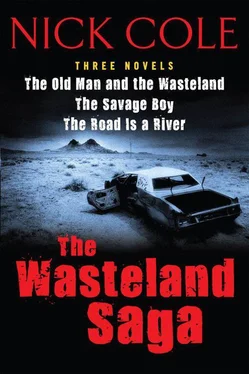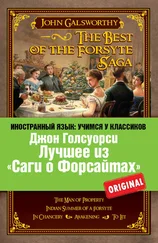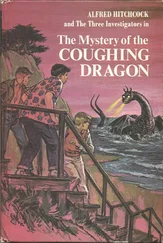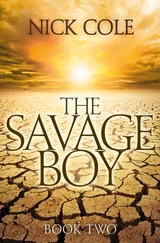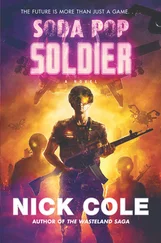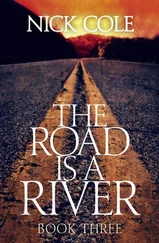And so the Apocalypse must be our promise
Of a better tomorrow
When we hear-ed that doomsday bell
The gunfire a Ratta-tat-tating,
Your screams for mercy
The blast that blew everything away that was,
And when we saw the light of bombs bursting in air
Someone said ‘ ‘Twas but the sound of man worshipping his maker,‘
So…
Siege!
Lone Gunman!
Horde rapes outpost!
Nuclear Bomb Disintegrates London!
It’s just be the sounds of man
worshipping his maker.
At the bottom of the piece of paper, as if separate and a command, the Old Man read, ALL HAIL KING CHARLIE!
The Old Man let the screed fall to the ground. He motioned for the Boy to get back into the tank, and as he climbed once more into the hatch, his eyes fell to the final words that had been slop-painted onto the highway before the tank.
ONCE YOU’RE FREE OF SHAME YOU’RE FREE TO ACT SHAMELESSLY.
GIVE UP, NUNCLE, YOU’VE GOT NO CHANCE!
On the other side of the tunnel the night seemed cooler, the air fresher. The moon turned everything slightly blue with its glaring yellow light now that it had risen above the distant dust storm.
In the hours that followed, there were other tight spots and places where the road seemed impassable. They threaded each of these places carefully, waiting for an attack that did not come.
The road improved and soon they were making good time across the high desert with dawn just a few hours away. The Boy, whose chin had fallen to his chest, lay deep in sleep bathed by the red light of the tank, fastened into his seat. When the Old Man tried the intercom, his granddaughter only murmured and he knew she too was sleeping now.
Alone, he drove through what remained of the night and soon the eastern sky began to turn a pale blue.
Another day.
They topped the rise that looked down on Albuquerque in the soft light of first morning.
The city is still there.
Ted.
On the eastern side of town, the Old Man could see thin strings of electric light still burning distantly like twinkling gems in the pink of morning.
They crossed gray concrete roads and empty sun-bleached buildings falling to rubble in the blaze of morning. The Old Man aimed the tank toward the strings of light still twinkling in the bright daylight below the foothills on the eastern edge of town.
Those lights should be off by now. Who would leave them on during the day?
But the lights remained on and when the Old Man found the settlement, a walled-off neighborhood below the easternmost foothills, the Old Man did not wonder why no one had turned out the lights. They were greeted by a soft dry breeze and the silence of abandonment.
The settlement was a large tract housing development lying alongside the highway leading north. A massive adobe brick wall, built before the bombs, surrounded the entire development.
Why was this place spared, like Tucson?
At the entrance they found a makeshift gate fashioned from the metal one might find at the gates of industrial warehouses. Two watchtowers that had risen from behind the wall had been pulled down, their frames sprayed outward like so many spilled matchsticks. The patchwork gate was wide open.
Why?
The Fool, the Horde, King Charlie. Does it matter? Someone.
Maybe they fled? Maybe they’re hiding?
But the pulled-down watchtowers told another story.
Inside, the three of them found the town.
Streets.
Houses.
A humming generator in the distance.
Doors wide open.
Empty mugs and glasses whose insides were still stained with punch-red syrup.
The Boy went back to the tank and the gate once the Old Man had called out “hello” and received no response.
“What happened here, Poppa?”
“Nothing good.”
“It seems bad.”
“Don’t worry. We’ll leave soon.”
But the fuel, my friend, there is only a little left.
“I’m not worried, Poppa.”
“I know.”
“Are you worried, Poppa?”
The Old Man did not answer her and instead continued to search the town as she trailed after him.
They wandered through a few houses, and what they found within told them nothing other than that one moment of life lived ordinarily had frozen, and that time had refused to move forward.
Beds unmade.
Wash hanging.
Each house smelling of dust and wood.
Tools, usable salvage, merely left for anyone to take.
In one house they found a spilled glass of milk.
The milk was warm and spoiled.
We should find the generator. Maybe it runs on fuel.
As if on cue, while the Old Man stood over the spilled milk and heard at the same time the distant hum of power, the generator died.
Outside, stepping over the front lawns turned to dying gardens, the strings of light above had ceased to twinkle.
The Old Man followed the darkened lights to thick rubber electrical cables that snaked through the streets and led to a house on the far edge of the settlement. Inside, the Old Man found hundreds of generators set up in every room. A central fuel bladder occupied the upper story. In the backyard they found a fuel truck that started crankily. Its tank was almost empty.
This was their power plant.
But the fuel is somewhere else.
Yes.
At the front entrance, waiting in the shade of the tank and drinking from a canteen, the Boy watched the land to the north of them.
“They were chained up over there,” said the Boy and pointed toward the median. “There’re drops of blood all over the dirt. The slavers must have put fishhooks in their noses or mouths and linked them to chains. Then they went north. I’ve seen it done before.”
“Can you tell how many days ago that might have been?” asked the Old Man.
“A week. Maybe more.”
The explosion shook the city.
It was distant. A boom, and then a crack that seemed to follow seconds after, echoed far out across the city and into the hills above them.
Back toward the center of the city, flames shot skyward as a black plume of smoke belched into the tired blue sky.
“Is it one of the bombs from before, Poppa?”
“No. Just an explosion.”
She has no idea how big those bombs were. She has heard me and the other survivors who lived through those days talk of them and all that they took away, but she really has no idea how massive they were.
“Are you sure, Poppa?” she said, the worry evident.
“I am sure.”
But he could see her face. Her wide eyes. The lips pressed together.
“Those bombs destroyed entire cities,” said the Boy. “We would be dead if it had been one.”
After a moment she seemed to accept the Boy’s words.
Relaxing.
She has lived in fear of those bombs her whole life. They are her boogeyman.
Yes. And this Boy said the words that comforted her, my friend.
Yes. There is that also.
They drove as close to the flames and smoke as they could. They could smell the thick scent of burning fuel.
It was an industrial district.
Narrow streets.
Concrete warehouse.
In green slop-paint the words “How now Nuncle Brown Cow?” were splashed across the smooth side of an old warehouse.
The Fool did this.
It would seem so, my friend.
This Ted must have been brewing their fuel here. He seems a very smart man. Our village could have used him.
The world could have used him.
Читать дальше
Конец ознакомительного отрывка
Купить книгу
